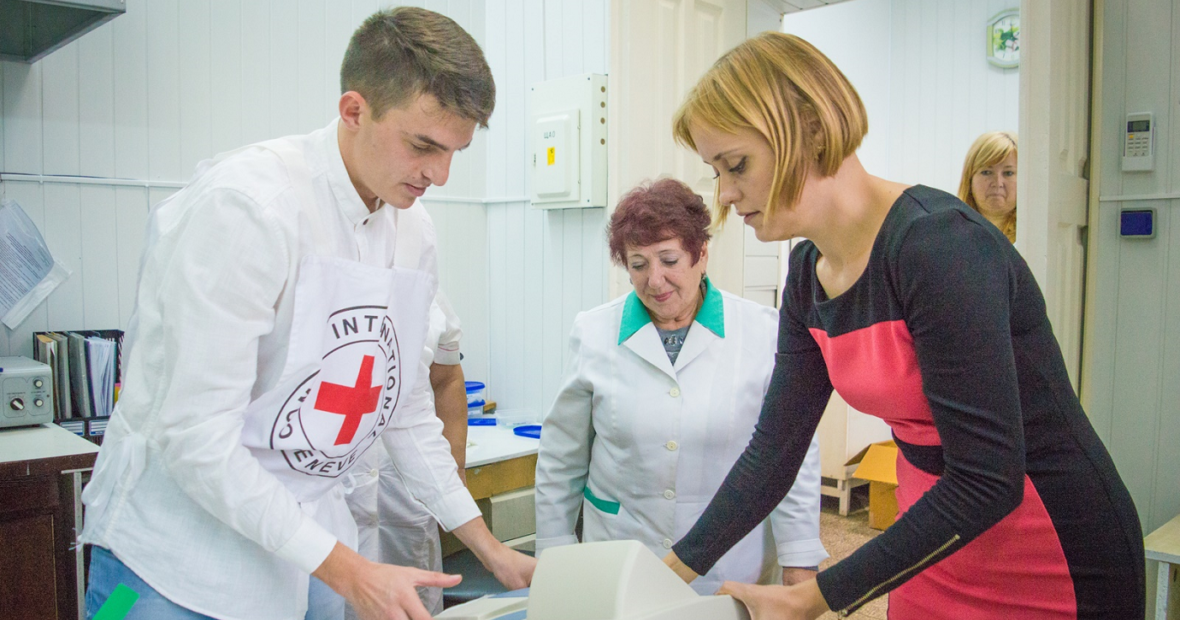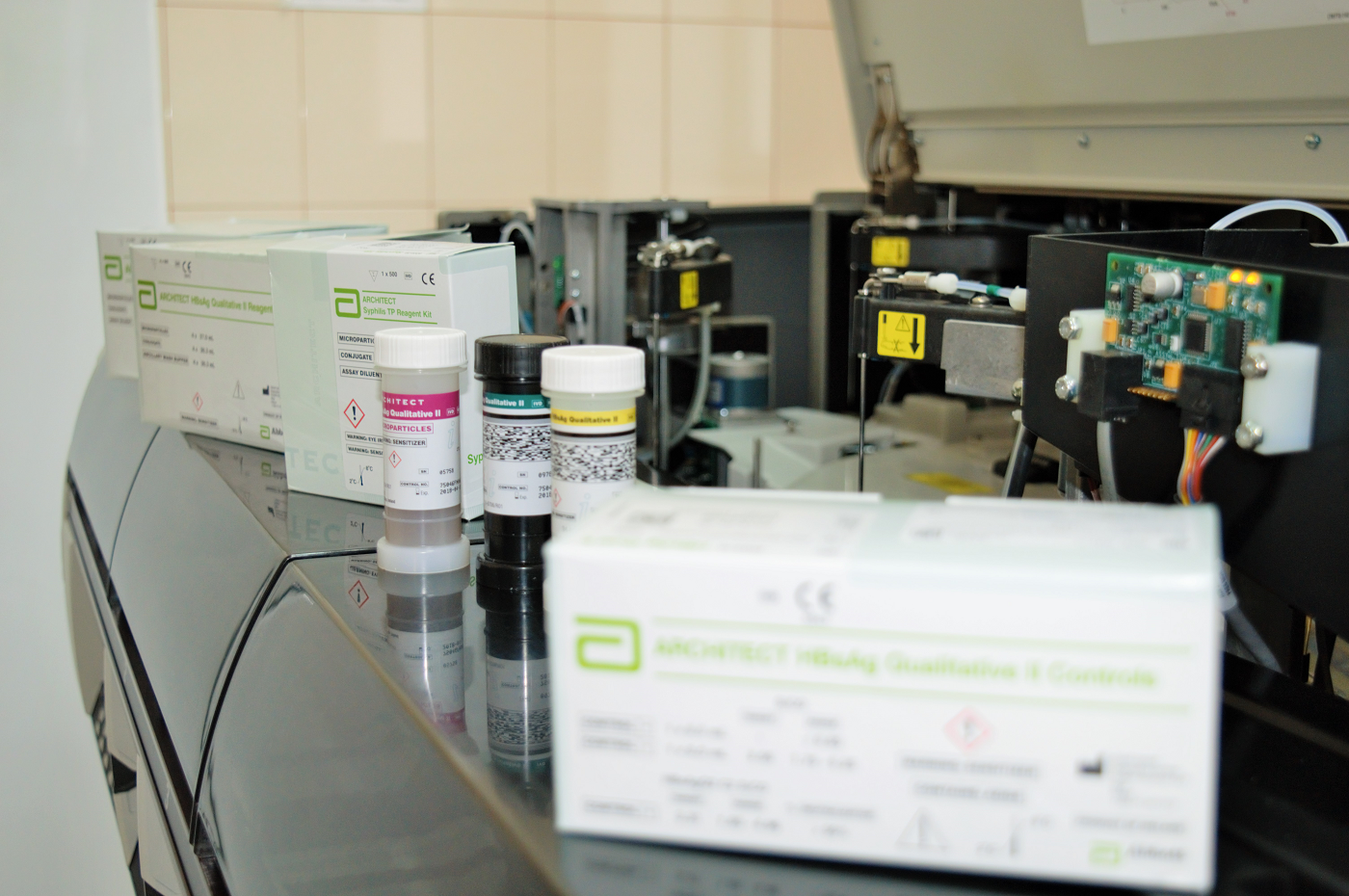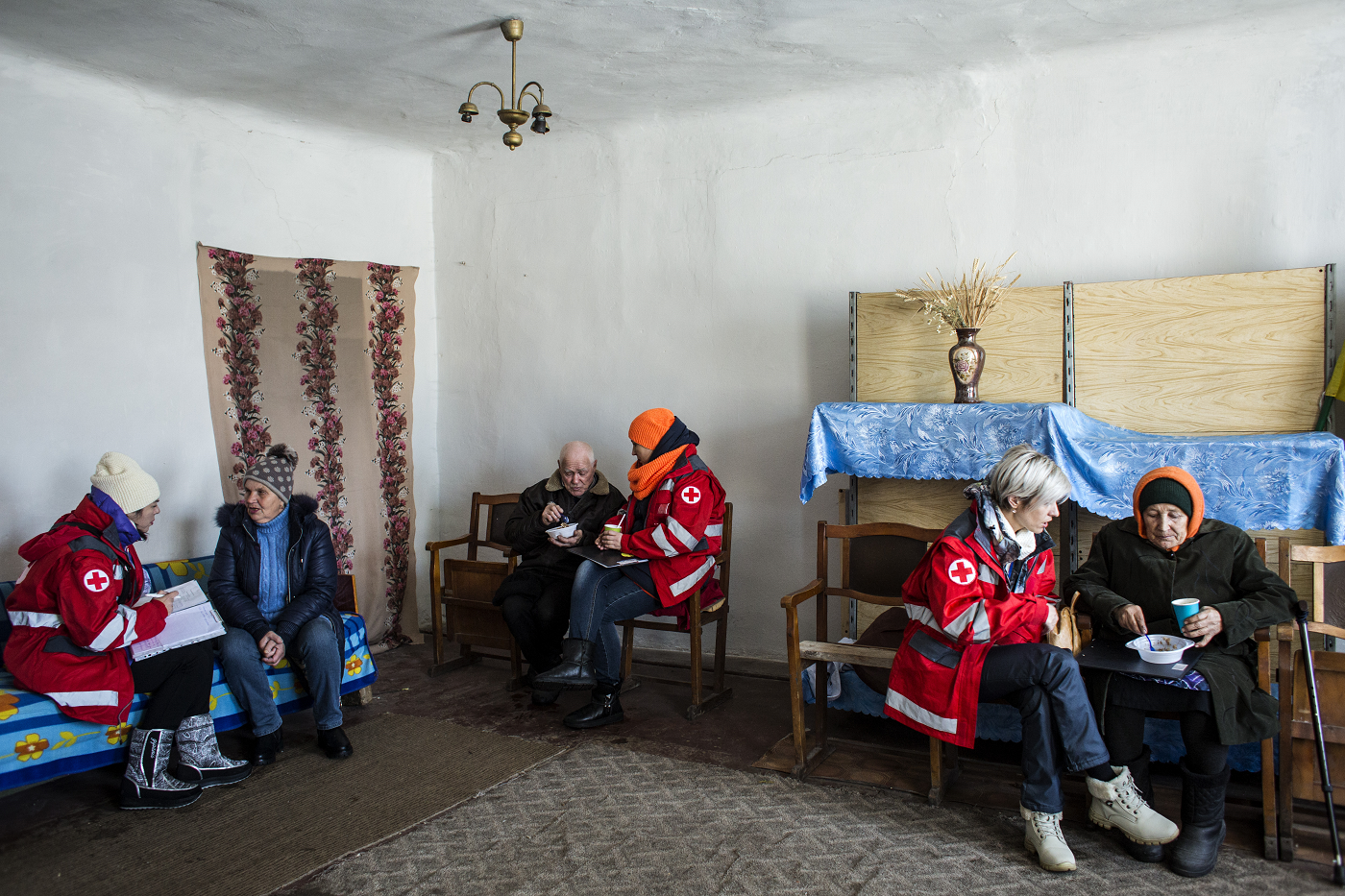Kyiv (ICRC) – The health-care system continues to bear the brunt of the armed conflict in eastern Ukraine. The challenge facing hospitals is particularly great, as they have to be able to treat those injured in the hostilities in addition to handling patients with chronic diseases and everyday illnesses, which have not ceased to exist. This places an increasing burden on both patients and medical personnel. Furthermore, medics and other members of the local population have to cope with the continuous stress of living in a conflict area and the psychological implications this can have. With all this in mind, the International Committee of the Red Cross (ICRC) is working to ensure that hospitals in eastern Ukraine have the emergency supplies they need to deal with an escalation in hostilities. It is also working to repair medical infrastructure, supply medical facilities with medicine for chronic diseases and provide psychosocial support to medical workers and the general population.
“Getting by with diabetes, asthma, a disability or even common flu can be a real challenge and even a matter of life or death for people affected by the conflict. Living in fear of shelling, shooting and landmines only adds to the stress and may even increase the risk of cardiovascular diseases and high blood pressure,” says Dr Archak Davidian, Health Coordinator for the ICRC delegation in Ukraine. “The support we provide to health-care facilities helps to save thousands of lives.”
In addition to repairing damaged medical buildings, the ICRC provides around 60 polyclinics and primary health-care centres on both sides of the contact line with the medicines needed to treat cardiovascular diseases, high blood pressure, asthma and type II diabetes, as well as tetanus vaccines. Basic medical supplies, such as dressing materials, gloves, disinfectants, surgical sets and antibiotics, are also donated to meet urgent needs.
The ICRC currently covers the needs of patients in Donetsk and Luhansk who are dependent on human insulin. To ensure that all health facilities have access to safe blood, the ICRC also provides blood banks in Donetsk and Luhansk with test systems and reagents for testing blood for infectious diseases. When needed, the ICRC assists blood banks in other locations along the contact line as well.
In order to maintain responsiveness in the event of a sudden upsurge in the number of wounded patients, the ICRC ensures that key hospitals in Donetsk and Luhansk regions have enough emergency medical supplies and surgical sets to treat up to 50 wounded patients. At the same time, the ICRC teams in the Donbas are in regular contact with medical facilities so that they can react quickly to their needs.
Wounds caused by the conflict are not only physical. The ICRC offices in Sievierodonetsk and Sloviansk offer mental health and psychosocial support to people living near the contact line and psychosocial assistance to families whose loved ones have gone missing as a result of the conflict. The ICRC also works with social workers, Ukraine Red Cross volunteers, teachers, doctors, nurses and psychologists so that they are better equipped to deal with the conflict-related mental health and psychosocial needs of patients and pupils and to help people cope with living with the uncertainty of a loved one’s fate.
“Health needs in the Donbas are complex, and we are doing everything we possibly can to alleviate human suffering”, says Dr Davidian.



